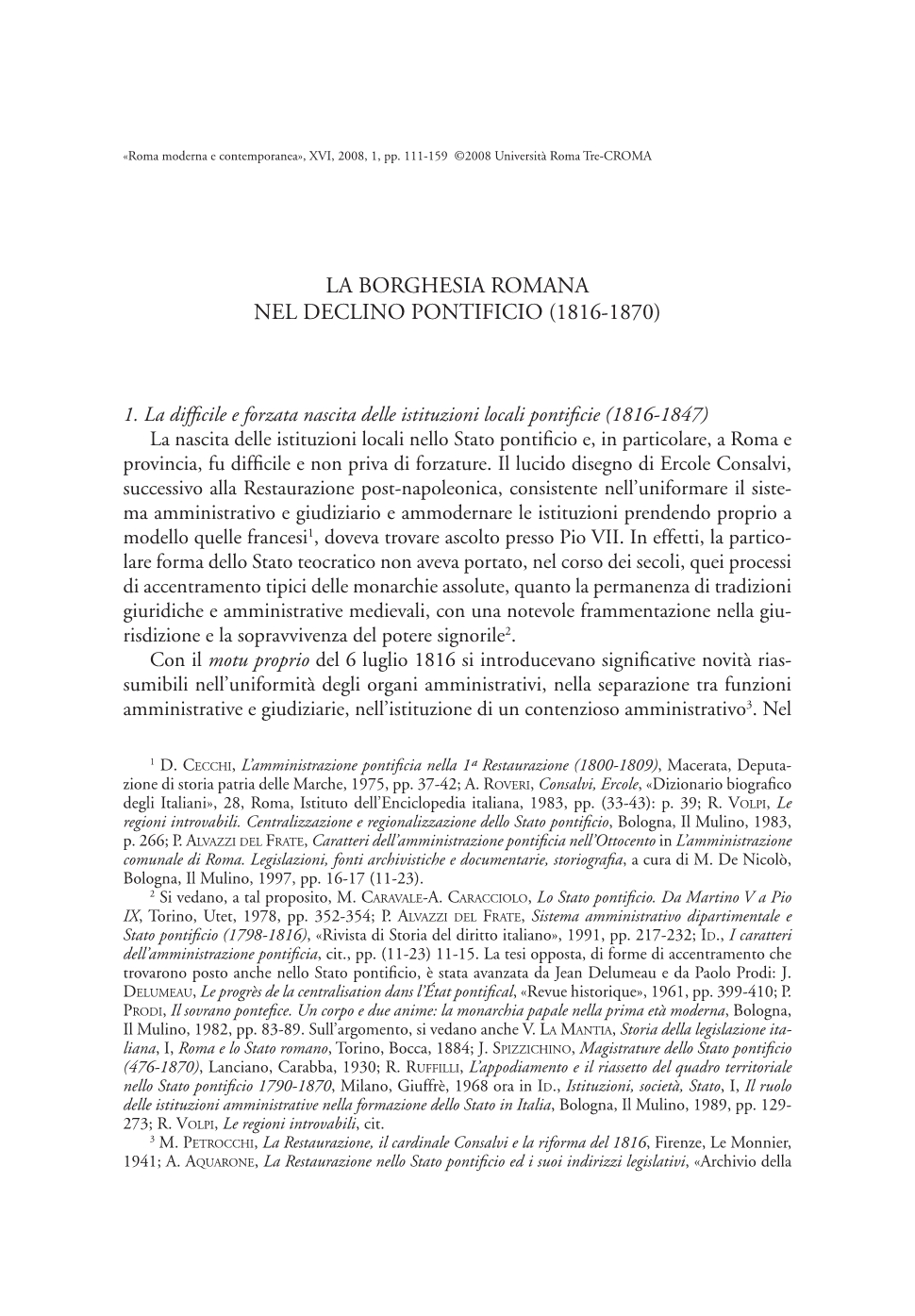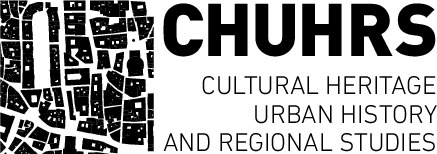
- Roma moderna e contemporanea
- Codice etico
- Editore e amministrazione
- Organi scientifici
- Indicizzazione e valutazione
- Norme editoriali
- Ultimo fascicolo
- Indice dei fascicoli
- Indice degli autori
- Articoli Open access
- Call for papers Numero monografico
- Abbonamenti
- Info recensioni
- Trasferimento di copyright
- Richiesta di autorizzazioni
AMBIENTE DI TEST
Indice dei fascicoli
ROMA MODERNA E CONTEMPORANEA » 2008/1 » Nobili e Borghesi nel tramonto dello Stato Pontificio
ISSN 1122-0244
De Nicolò Marco
La borghesia romana nel declino pontificio (1816-1870)
pp.111-159, DOI 10.17426/76312
Articoli
Abstract: In the papal state the bourgeoisie found a different kind of obstacle. Political institutions, central and peripheral administration remained, for a long time, in the hands of a clerical staff without skills. The aristocrats called upon to cover some pubblic offices didn't appear ready to follow the example of the most efficient administrations. Political life, public institutions and economy seemed to loiter on the road of modernization. Particularly in Rome, the theocratic nature of the papal state prevented the bourgeoisie from taking part in decisive decisions for the capital. The short periods of rupture and the attemps at reform were not sufficient to create an efficient state and dynamic economy. On the one hand, the Roman bourgeoisie didn't develop a complete class consciousness, and on the other hand, it found a wall built by papal power against modernity. The same theocratic nature of the state prevented institutional reforms and market liberalization: the risk of the implosion of papal structures had already been demonstrated with the experience of the second Roman Republic.

Referenze
- download: n.d.
- Url: http://www.chuhrs.eu/?contenuto=indice-dei-fascicoli-rmc&idarticolo=473
- DOI: 10.17426/76312
- citazione: M. De Nicolò, La borghesia romana nel declino pontificio (1816-1870), "Roma moderna e Contemporanea", XVI/1, pp.111-159, DOI: 10.17426/76312
